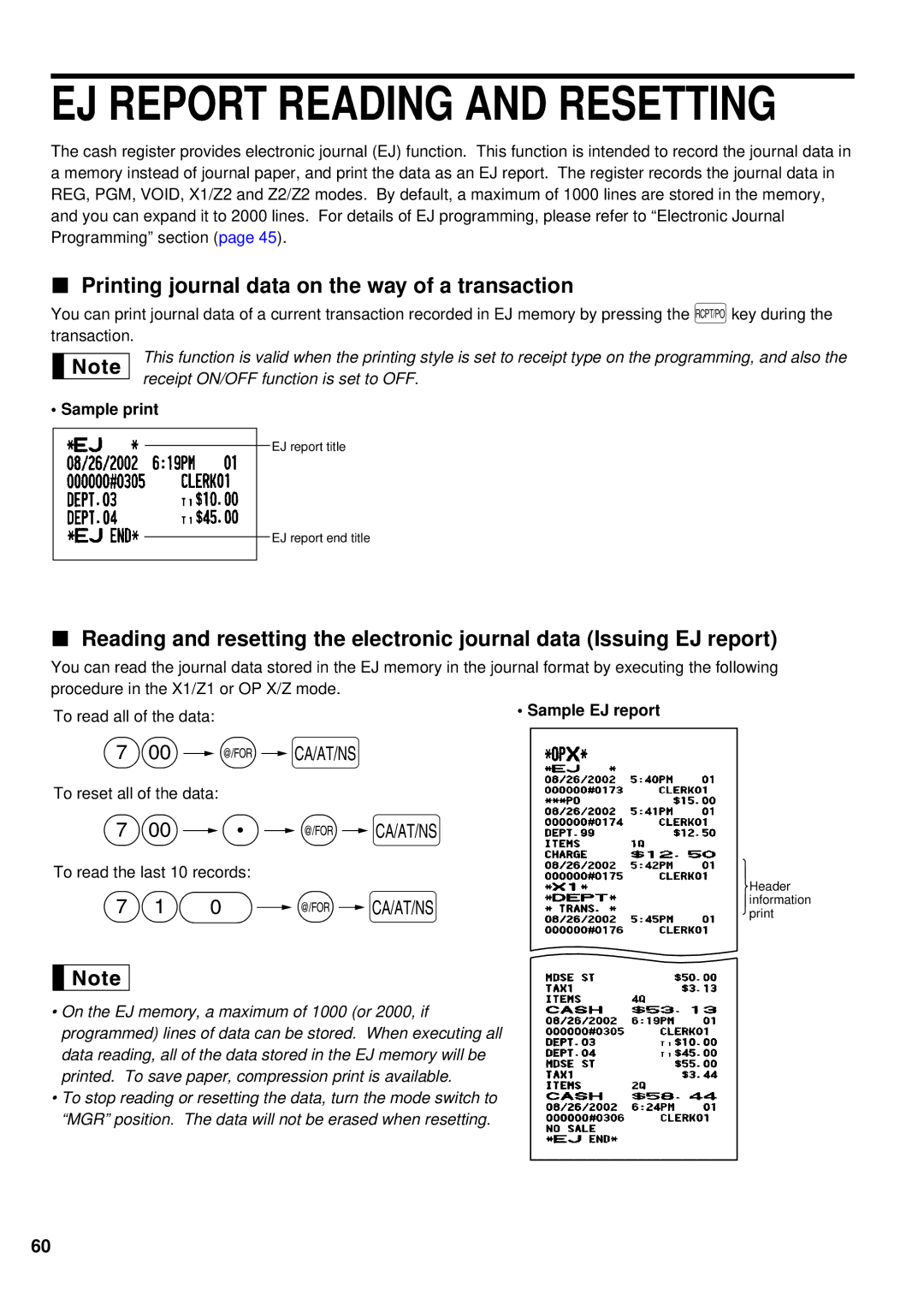
EJ REPORT READING AND RESETTING
The cash register provides electronic journal (EJ) function. This function is intended to record the journal data in a memory instead of journal paper, and print the data as an EJ report. The register records the journal data in REG, PGM, VOID, X1/Z2 and Z2/Z2 modes. By default, a maximum of 1000 lines are stored in the memory, and you can expand it to 2000 lines. For details of EJ programming, please refer to “Electronic Journal Programming” section (page 45).
Printing journal data on the way of a transaction
You can print journal data of a current transaction recorded in EJ memory by pressing the Rkey during the transaction.
This function is valid when the printing style is set to receipt type on the programming, and also the receipt ON/OFF function is set to OFF.
• Sample print
EJ report title
EJ report end title
Reading and resetting the electronic journal data (Issuing EJ report)
You can read the journal data stored in the EJ memory in the journal format by executing the following procedure in the X1/Z1 or OP X/Z mode.
To read all of the data: | • Sample EJ report |
|
7:@ A
To reset all of the data:
7:P @ A
To read the last 10 records:
710@ A
•On the EJ memory, a maximum of 1000 (or 2000, if programmed) lines of data can be stored. When executing all data reading, all of the data stored in the EJ memory will be printed. To save paper, compression print is available.
•To stop reading or resetting the data, turn the mode switch to “MGR” position. The data will not be erased when resetting.
Header information print
60
